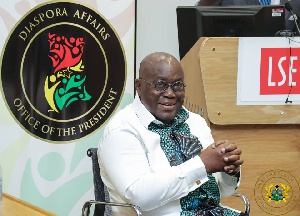Dear His Excellency:
Greetings. I write to you this first day of December to urge you to set up a Commission of Inquiry to explore the future of legal education in this country. To the best of my knowledge, the last time such a commission was set up was in 1958.
While the country and the legal landscape have changed dramatically, the structures set up as a result of the 1958 commission have not. For instance, the Legal Profession Act, 1960 (Act 32) still names the “Head of the Faculty of Law at the University College of Ghana” as a member of the General Legal Council while ignoring the fact that we now have about 10 Faculties of Law.
Similarly, the Act provides for professional education to be offered at the Ghana School of Law, a constraint that has not been well managed considering the growth in the population of students interested in legal education.
The Council has imposed an annual quota of 250 students, which after repeated complaints and litigation, it has unwillingly increased to a still woefully inadequate 600 this year. In fact, however, there are over 2,000 qualified students each year who are eager to learn and able to pay their way who are denied the opportunity to pursue professional education. This admission gap is needless and unproductive. The Council’s statutory duty is to make arrangements to afford opportunities for all qualified students to read and obtain practical experience in the law, not to put unlawful impediments in their way.
Consequently, in spite of widespread shortage of lawyers in the country, the Ghana School of Law enrolled and called to the Ghanaian Bar a paltry 252 lawyers in 2017. Other African countries at the same level of development and with smaller or same size population call lawyers in the thousands.
The said Commission should obtain the perspectives of various constituencies, including judges, deans, professors and practitioners and use those perspectives to articulate the likely dramatic changes in the legal profession in the next decade and beyond. Similarly, it should explore and delineate a regulatory structure that is fit for managing a 21st century legal profession. The Commission should also explore possible changes to the methods of training and testing the future generations of law students, including bar exam passage rates and their skills needs.
Mr. President, it is on the above grounds that I also urge you to speak out on the draft “Legal Profession (Professional and Post-Call Law Course) Regulations, 2017” that is allegedly under consideration by Parliament (allegedly, because it is not on Parliament’s website). The Regulation seeks to dismantle the current objective, incorruptible, progressive and automatic admission requirements and replace them with subjective, corruptible, retrogressive and opaque requirements that entrench the GLC’s power and augur ill for legal education in the country.
I must mention that the GLC, over the past 5 years, has gone rogue and has failed to follow its own regulations resulting in unlawfully disqualifying over 3,000 qualified citizens. The country cannot simply ignore the injustice that these students have suffered. We must find a solution for them if we are serious about justice, rule of law and the liberal values embodied in our Constitution.
Mr. President, your sense of fair play and justice are impeccable. You have been a doyen of our legal profession. It is because of your track record that I feel obliged to turn to you to set up the aforementioned Commission while simultaneously pleading with you to call for the rejection of the proposed regulation, which attempts to legalize an unpopular, unlawful, unjust and an unethical status quo. The public interest will also justify the setting up of the Commission.
Opinions of Sunday, 3 December 2017
Columnist: S. Kwaku Asare
Open letter to President Akufo-Addo on the future of legal education
Entertainment














